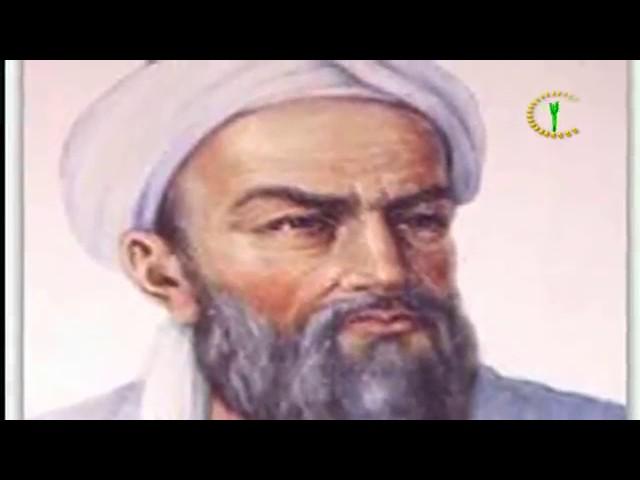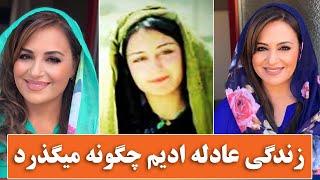
Ибн Сино хақида фильм, documentary film about Avicenna, Ibn Sino haqida film
Abū-ʿAlī al-Ḥusayn ibn-ʿAbdallāh Ibn-Sīnā [Avicenna] (ca. 980–1037) was the preeminent philosopher and physician of the Islamic world. Avicenna or Ibn-Sīnā (Arabic: ابن سینا; c. born: August 7, 980 AD, Bukhara Region, in modern Uzbekistan – died: June 1037, Hamadan, Iran) was a Central Asian polymath who is regarded as one of the most significant thinkers and writers of the Islamic Golden Age.
Of the 450 works he is known to have written, around 240 have survived, including 150 on philosophy and 40 on medicine.
His most famous works are The Book of Healing, a philosophical and scientific encyclopedia, and The Canon of Medicine, a medical encyclopedia which became a standard medical text at many medieval universities and remained in use as late as 1650. In 1973, Avicenna's Canon Of Medicine was reprinted in New York.
Besides philosophy and medicine, Avicenna's corpus includes writings on astronomy, alchemy, geography and geology, psychology, Islamic theology, logic, mathematics, physics and poetry. Influenced by: Al-Farabi, Aristotle, Muhammad, Hippocrates, Aristotle, Omar Khayyam.
In Latin translation, beginning with the 12th century, Avicenna’s philosophy influenced mightily the medieval and Renaissance philosophers and scholars, just as the Latin translation of his medical Canon (GMed 1), often revised, formed the basis of medical instruction in European universities until the 17th century.
He is second only to Aristotle, as it was intuitively acknowledged in the Islamic world where he is called “The Preeminent Master” (al-shaykh al-raʾīs), after Aristotle, whom Avicenna called “The First Teacher” (al-muʿallim al-awwal).
Of the 450 works he is known to have written, around 240 have survived, including 150 on philosophy and 40 on medicine.
His most famous works are The Book of Healing, a philosophical and scientific encyclopedia, and The Canon of Medicine, a medical encyclopedia which became a standard medical text at many medieval universities and remained in use as late as 1650. In 1973, Avicenna's Canon Of Medicine was reprinted in New York.
Besides philosophy and medicine, Avicenna's corpus includes writings on astronomy, alchemy, geography and geology, psychology, Islamic theology, logic, mathematics, physics and poetry. Influenced by: Al-Farabi, Aristotle, Muhammad, Hippocrates, Aristotle, Omar Khayyam.
In Latin translation, beginning with the 12th century, Avicenna’s philosophy influenced mightily the medieval and Renaissance philosophers and scholars, just as the Latin translation of his medical Canon (GMed 1), often revised, formed the basis of medical instruction in European universities until the 17th century.
He is second only to Aristotle, as it was intuitively acknowledged in the Islamic world where he is called “The Preeminent Master” (al-shaykh al-raʾīs), after Aristotle, whom Avicenna called “The First Teacher” (al-muʿallim al-awwal).
Комментарии:
4 Ways to Encrypt Your Data for MAXIMUM security
All Things Secured
Recyclerview's notifyDataSetChanged does not take effect
Roel Van de Paar
Gulp media|زندگی عادله ادیم چگونه میگذرد
Gulp media
ADIDAS PREDATOR HYBRIDS #shorts
ARS Goalkeeping

![[EXCLUSIVE CODES] How to get THREE FREE PRIZE CRATES | Roblox Ripull Minigames [EXCLUSIVE CODES] How to get THREE FREE PRIZE CRATES | Roblox Ripull Minigames](https://smotrel.cc/img/upload/Z2IwMzhDakdjSkc.jpg)
























